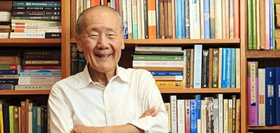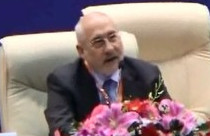Policy shift gives birth to investor optimism
Author : Source : China Daily 2013-12-10
BEIJING, Nov. 20 -- With China's loosening up of one-child policy, many industries serving mothers and newborns are eyeing potential business opportunities. But will the policy deliver on their expectations?
Having been an only child, Li Xia has been longing for a sibling for her 2-year-old daughter.
Up to now, China's family planning policy ruled that out. She wasn't eligible to have another baby because her husband wasn't also an only child.
But with the recent adjustment, Li is preparing to welcome a new family member in the near future. According to the National Population and Family Planning Commission, couples where just one spouse is an only child will be permitted to have two children.
Although the timetable for implementation of the policy has not been fixed, newly eligible couples like Li and her husband are gearing up to welcome a new baby.
They're not the only ones excited about the prospect of another child. Companies that make products for mothers and babies, and investors in those companies, are optimistic, too.
Sitting in the Lidu area, outside of the north Fourth Ring Road in Beijing, Amcare Corp, a private hospital specializing in mother and child healthcare, welcomes newborns every month.
Their business is looking brighter thanks to the relaxation of the one-child policy.
Warburg Pincus LLC, a private equity firm, has recently led a majority part of an investment of $100 million in Amcare to fund the company's expansion.
Within five years, Amcare is expected to add seven new facilities, making a total of 10, in major cities including Shanghai, Hangzhou and Wuhan to cope with the rising demand for medical services for newborns, children and pregnant women.
"The landmark initiative is a boost to our hospital," said Hu Lan, chief executive officer with Amcare, which was been operated since 2006.
"But we're also a bit cautious about the impact of the relaxation of the one-child policy."
Demographers have estimated that after the relaxation of the family planning policy, there will be an additional 1 million newborns in China each year. That's about a 5 percent increase.
Hu said the relatively small number of additional newborns will give the hospital group time to catch up with the rise in demand while maintaining the safety of its operations.
Amcare's three facilities in Beijing and Tianjin achieved revenue of 300 million yuan ($49.2 million) last year, up 50 percent year-on-year.
Hu said each of the seven new facilities will require investment of 100 to 200 million yuan.
The group's patients are middle- and high-income earners, with a majority working for banking, Internet, technology and entertainment companies, Hu said.
Increases the bookmark digg Google Delicious buzz friendfeed Linkedin diigo stumbleupon Qzone QQ Microblog New regulation
The infant formula market is also expected to get a lift from the new regulation. The industry will see an additional 6 billion yuan in sales each year, said Song Liang, a dairy industry analyst.
The extra sales will mostly occur among Chinese brands of milk powder, shrinking the gap in market share between domestic and foreign milk producers, he said.
Song said that in first-tier cities, many couples are both only children. Those who wanted to have a second child already did so under the old policy, which allowed them to do so.
Therefore, the new policy will encourage more births of second children to couples in second- and third-tier cities. Those smaller cities and counties are the major battlefield for domestic baby formula makers, Song said.
In the baby formula market, domestic brands hold a share of about 40 percent and foreign brands account for about 60 percent. The market is worth about 55 billion yuan annually.
But after the relaxation of the regulations, domestic and foreign brands are expected to split the market evenly.
Foreign baby formula brands, which are most popular in first-tier cities, will be less affected by the limited increase of newborns in big cities, he said.
Responding to a query from China Daily, Nancy He, a corporate affairs officer at Nestle China Ltd, said: "We have just heard about the latest policy on family planning. We are studying the policy and have no comment on it at the moment."
Listed companies involved in mother-and-child care have seen their shares get a boost. Nine companies - including Ningbo David Medical Device Co Ltd (which makes infant incubators and warmers), Goldlok Toys Holdings (Guangdong) Co Ltd and Xinjiang Western Animal Husbandry Co Ltd - saw their shares rise by the daily 10 percent limit on Monday. But shares of the companies retreated on Tuesday.
A China International Capital Corp Ltd report said the relaxation of the family planning policy will alleviate the pressure of an aging population and help optimize the population structure.
The report said that the relaxation is only a beginning and more adjustments are expected.
In the short term, the demand for mother-and-child consumption will be lifted. Sectors including maternity medicines and treatment, medical testing facilities, baby care, healthcare, baby formula, diapers, toys, clothing for children and early education will also be supported, it said.
Haitong International Securities Group Ltd said that the initiatives will give an obvious boost to the number of newborns. The country will experience a fourth baby boom in five years, when people born between 1980 and 1990 marry and give birth.
Coupled with the newborns from the relaxed policy, the number of newborns each year is expected to reach 23 million in three years. The number of children below age 3 will be 35 percent above the current level.
But some analysts are taking a conservative view of the new regulations' impact.
Xue Shengwen, a senior researcher at CIConsulting, an industry research firm in China, said the impact on companies will be limited. Xue added that there are still uncertainties about the policy change.
Xue said the high costs of education, medical treatment and housing will give many couples of childbearing age second thoughts about second babies.
Interview with Wang Gungwu on significance of studying overseas Chinese
Wang Gungwu is a distinguished Australian historian who studies overseas Chinese. He currently works at the Faculty o...
-
On the rat/mouse of the zodiac
2020-02-20
-
Regional development calls for Huaihe culture’s soft power
2020-01-10
-
Archaeological discoveries unveil Maritime Silk Road
2020-01-06
-
China’s industrial art printing
2019-12-10
-
Yue-Gan Ancient Road: A journey into Hakka history
2019-05-13
-
The Lantern Festival in Dream of the Red Chamber
2019-02-18














 2011-2013 by www.cssn.cn. All Rights Reserved
2011-2013 by www.cssn.cn. All Rights Reserved